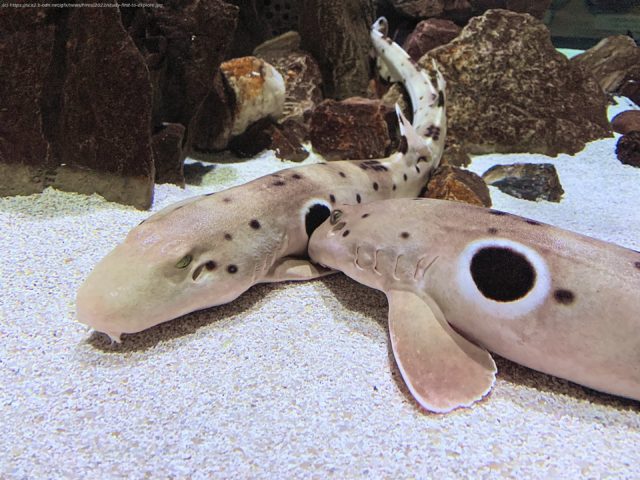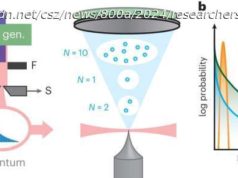A newly-discovered walking shark that breaks all of the rules for survival is the focus of a first-of-its-kind study by Florida Atlantic University and collaborators in Australia. Researchers investigated how walking and swimming changes in the epaulette shark’s (Hemiscyllium ocellatum) early development. This small (about 3 feet), reef-dwelling, benthic shark walks both in and out of water by wriggling its body and pushing with its paddle-shaped fins.
August 18, 2022
A newly-discovered walking shark that breaks all of the rules for survival is the focus of a first-of-its-kind study by Florida Atlantic University and collaborators in Australia. Researchers investigated how walking and swimming changes in the epaulette shark’s (Hemiscyllium ocellatum) early development. This small (about 3 feet), reef-dwelling, benthic shark walks both in and out of water by wriggling its body and pushing with its paddle-shaped fins.
Found within the reef flats around Australia’s southern Great Barrier Reef, epaulette sharks experience short periods of elevated CO2 and hypoxia (low oxygen) as well as fluctuating temperatures as reef flats become isolated with the outgoing tide. Remarkably, this walking shark is capable of surviving complete anoxia (no oxygen) for two hours without adverse effects, and at a much higher temperature than most other hypoxia-tolerant animals.
The epaulette shark’s ability to move efficiently among micro-habitats under these challenging environmental conditions could directly impact their survival and physiological responses to climate change. Yet, very few studies have examined their kinematics (body movements). Those that have, only focused on adult-life stages. No study has specifically examined their locomotion (how they move) during early-life stages, until now.
As locomotor performance may be key to the epaulette sharks’ robust response to challenging environmental conditions, FAU researchers in collaboration with Australia’s James Cook University and Macquaire University examined differences in walking and swimming in neonate (newly-hatched) and juvenile walking sharks.






